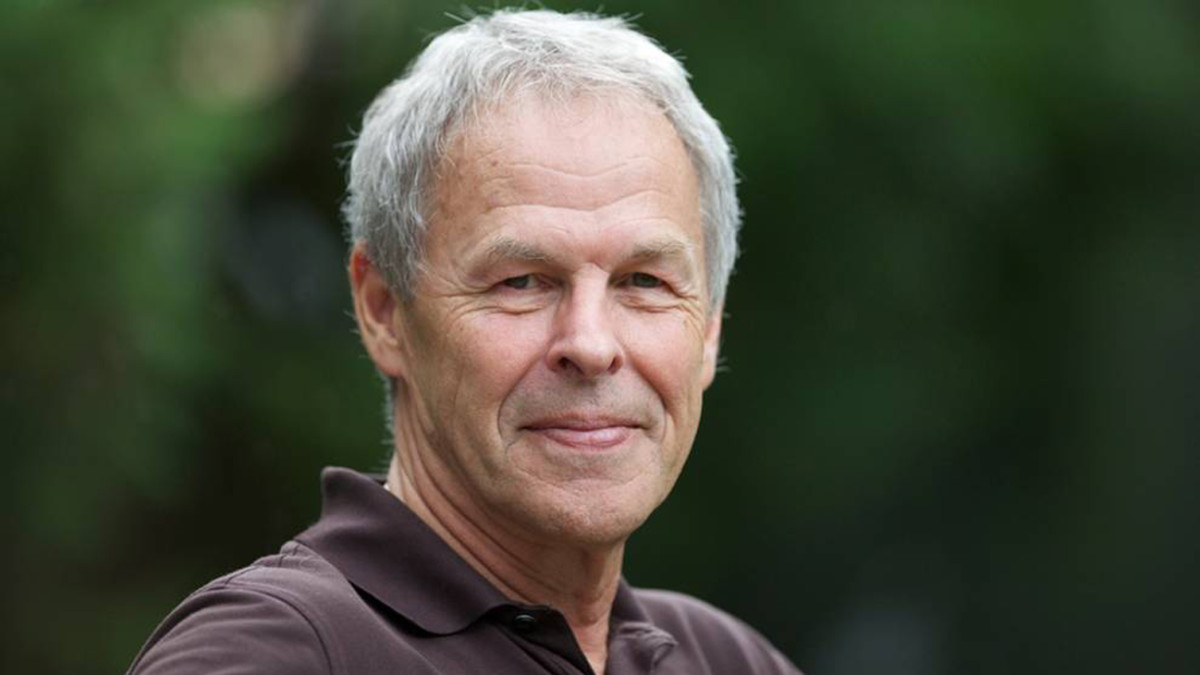Journalist and writer Linden MacIntyre said everything he’s written or read for more than 50 years is “unavoidably and sometimes deliberately” made-up to some extent.
“Any account of any event that has already happened, even if it’s written by someone who was prior to the event, will be recorded after the fact, and therefore an act of remembering,” he said.
MacIntyre gave the annual History Lecture to an audience of about 160 people at the Kinsella Auditorium on Jan. 23.
He worked at CBC for 38 years, prepared documentary reports on international affairs, was the host and editor of CBC’s Sunday Morning radio show and co-hosted the TV show The Fifth Estate.
Whenever humans remember, MacIntyre said, they are influenced by bias. He added journalists and professional historians include concrete detail, consult with different points of view and credible authorities to neutralize the impact of that bias.
“But in the end, any history of any event will be in some extent made-up, because as a recreation, it is by definition, a creative exercise,” he said.
MacIntyre, who has written eight books, said he was compelled to start writing because of the Lebanese Civil War in 1982. He went to Lebanon to cover the aftermath of the massacre of Palestinians at the Sabra and Shatila refugee camps for CBC. Before that, he had been in Jordan in refugee camps for a documentary about the Palestinian diaspora.
Approximately two thousand people had died in Lebanon, all of whom were women, children and seniors. Even though MacIntyre went there soon after it happened, he said a political campaign of propaganda, deception, obstruction and lies obscured the truth.
“I did my journalistic best, but it was incomplete,” he said.
When he tried to determine who was responsible for murdering those people, he encountered many sides to the same story. Some blamed the Israelis. Some blamed the Lebanese Christians. Others said that everyone in the attacked group were a terrorist.
Even if the story was as factual as he could make it, he said, he still had to create a narrative that would convey to people the message that it was “a catastrophic human history.”
“I had to formulate a context in which such awful things can happen,” he said.
He said even a long time afterward, he was troubled by the awareness that his story from that scene, at the time, hadn’t really got to the essence of what had happened there.
MacIntyre said he realized the skills he had in journalism and the platform provided by the media were “woefully inadequate” for getting to the essence of the stories he was trying to tell.
According to him, the moral essence of many stories and of absolute truth requires speculation, which he said is a tricky concept in mainstream journalism, especially when reporting on news events.
He said there will be no absolute true account, but what journalists can do is develop and refine the tools they have that help them get to the truth and evaluate the information that will help the truth come out.
“Their commitment to the truth is a commitment to the search for the effort to at least get close to the truth.”

